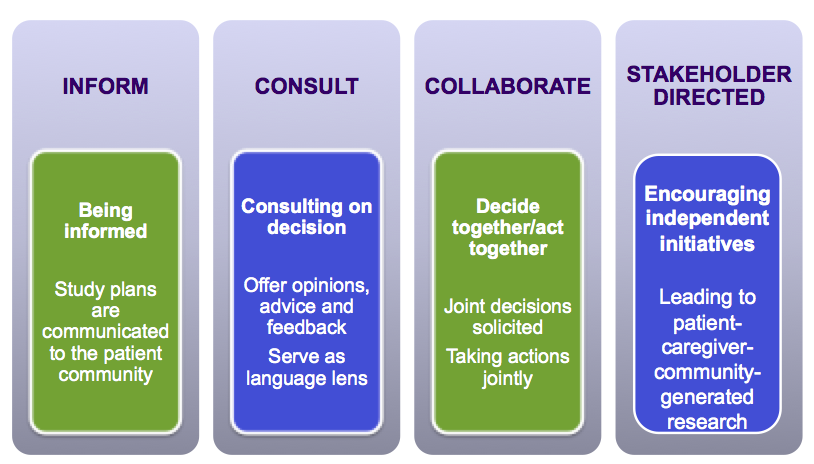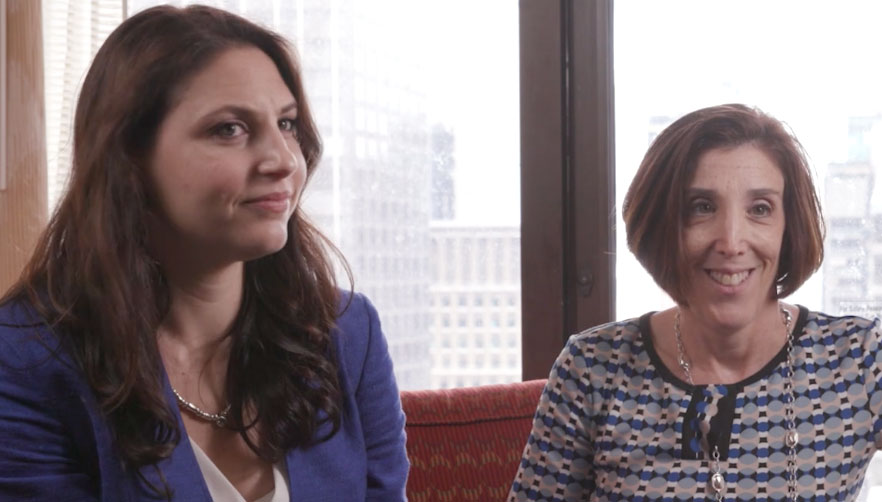Watch


“We believe that (engagement in research) can influence research to be more patient-centered, useful, and trustworthy and ultimately lead to greater use and uptake of research results by the patient and broader healthcare community.”Patient-Centered Outcomes Research Institute
The Patient-Centered Outcomes Research Institute (PCORI) defines engagement in research as, “the meaningful involvement of patients, caregivers, clinicians, and other healthcare stakeholders (such as training institutions, payers, industry, policy makers) throughout the research process—from topic selection through design and conduct of research to dissemination of results.”
PCORI created a framework that presents a continuum for patient, family, and community stakeholders from a low degree of involvement—being informed about a study—to the highest degree of involvement—directing and leading research studies.

Patient and Family Advisors (PFAs) and Patient and Family Advisory Councils (PFACs) are ideal stakeholders and can serve in roles that reflect the more participatory levels of this continuum. PFAs add a unique perspective and tremendous value to research teams by sharing their expertise in:
Our team for the project, “Creating Capacity for Sustainable Partnerships with Patient and Families in Research,” partnered with PFACs, staff, and researchers from seven organizations. Along the way we learned about the strengths and benefits of these partnerships but also the limits. It is clear that PFACs can be valuable collaborators but their involvement is constrained by their structure and purpose. In order to provide a fuller picture of partnerships, we also explored best practices for partnering with individual PFAs. This section describes the collaborative roles both PFACs and PFAs can play in research.

Watch
Rachel Biblow, Senior Director of Patient and Family Services, and Amy Kratchman, Family Consultant, reflect on the journey to develop research partnerships at the Children’s Hospital of Philadelphia.